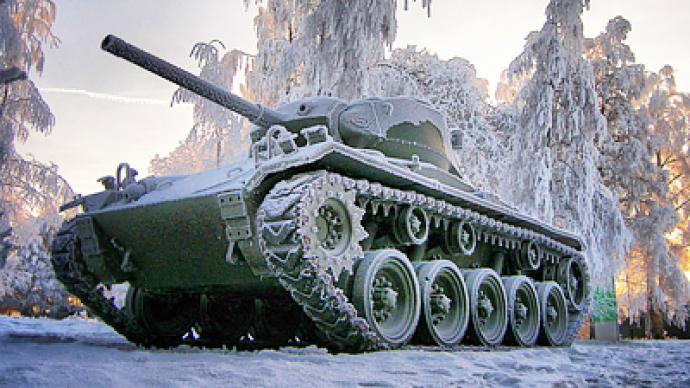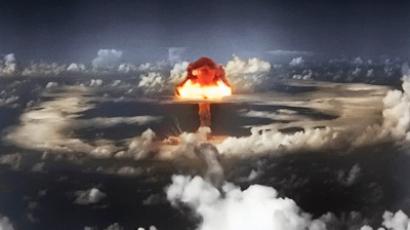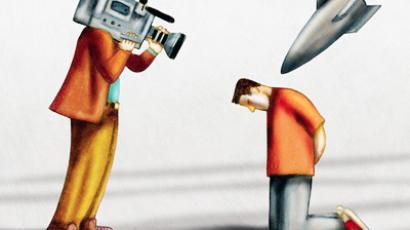Cold War vs. modern day US propaganda

Most propaganda images from the Cold War look outdated now, but the idea of embedding a message in Cold War style could be more relevant than ever in propaganda of the modern.
With a little hate here and a little fear-mongering there, could the raging positions of mainstream pundits on certain issues be stemming from something a little deeper than mood swings? What do Cold War and modern day propaganda have in common? “The two are connected to one another. What we’ve seen is the continuation of Cold War propaganda under new conditions,” said Rutgers University professor Norman Markowitz.The Pentagon has proven time and again its love of creating, chasing and trying to undermine what it calls enemies in Iraq and Afghanistan, as well as several other nations it deems rogue.“The United States is always involved in some kind of war of aggression. It rarely spends an entire year without invading some foreign country,” said editorial columnist Ted Rall. The media is almost constantly right there to march in lockstep.“We have a military-industrial media complex today. Most of the media is zoned in ideologically into what the Government is saying,” said media critic and film maker Danny Schechter. The Pentagon seems to like to get carried away with its military.“If you call the Pentagon, they can’t tell you if it is 700, 800, 900 or a thousand bases,” said Rall. Meanwhile, the media doesn’t seem to question much. “American media is saying as a matter of fact that Iran has a nuclear weapons program. The drums beaten for war in Washington are being echoed by our mainstream media,” said Steve Rendall, a senior analyst at FAIR. The list of America’s antagonists keeps building up. “When you have an imperial press corps that does nothing but defend the state, defend the empire and try to advance its goals, any country that gets in its way is going to be seen as an adversary or as an enemy, so in the American media there are a lot of countries that are deemed at least suspicious, if not enemy-countries,” explained Rendall. Meant to be a fourth independent branch of power and watchdog to the powers that be, the media is instead earning a nickname of “a ministry of propaganda” for the White House.“You got to CNN, you go to FOX NEWS, you get these hyper-adrenalin arguments between two combatants. One – allegedly from a liberal point of view, one – from a conservative point of view. But the context is so narrowed that you don’t get any critique of the national security state, nor the military industrial complex, nor the corporate structure,” said poet, lyricist and philosopher Phil Rockstroh. The lack of substance and narrow context is becoming all the more obvious in the age of the Internet, which makes alternative and often more relevant information available to anyone. While the establishment – politicians, corporations and media giants – embrace, and widen the circle of buddies. “It’s not only Government. It’s in coalition – tacit or otherwise – with think-tanks, with pundits, with others who have big money interest, certainly with lobbyists. Planting stories,” said Norman Solomon, the founder and president of the Institute for Public Accuracy in Washington DC.Russ Baker, an investigative journalist and the author of “Family of Secrets: The Bush Dynasty”, explained the US media in general, mainly large corporate media, is driven by profits and not good journalism. The media tailors to those in power to aid in their mission to grow and profit, this means not offending the government. “That’s why George W. Bush got so much coverage, uncritical coverage, of his own new memoirs whereas a book like mine which is full of staggering new information, really shocking well documented information, I can’t get on there,” he said. The US government security structure subverts true democracy, Baker argued. The media helps the government sustain a state of conflict because it benefits the elites who are in charge.“Our own country [United State] is basically run by a kind of an oligarchy and this begins to explain why the media is owned by a fairly small number of corporate interests, and why irrespective of what party holds the White house, the policies always seem to be the same. They always benefit a wealth interest,” said Baker.














